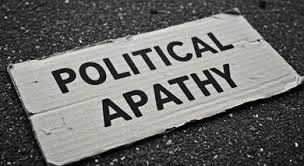Table of contents
Introduction: The Role of AI in Modern Nursing
Artificial intelligence (AI) in nursing has the potential to significantly reduce medical errors by enhancing decision-making, monitoring patient data, and predicting adverse events. By integrating AI into clinical workflows, healthcare providers can improve patient safety, optimize treatment outcomes, and support nurses in delivering high-quality care while minimizing human error.
Artificial intelligence is rapidly transforming healthcare, and nursing is no exception. Nurses are often at the frontline of patient care, making critical decisions under time pressure and dealing with complex medical information. Despite rigorous training, medical errors can occur due to fatigue, miscommunication, or the sheer complexity of patient care. AI has emerged as a tool that can augment human judgment, improve efficiency, and reduce the likelihood of errors.
AI in nursing includes machine learning algorithms, predictive analytics, natural language processing, and robotic systems. These technologies can monitor patient vitals in real time, analyze electronic health records (EHRs), and provide recommendations based on large datasets. By integrating AI into daily nursing practice, hospitals can enhance patient outcomes, streamline workflows, and support nurses in delivering precise and timely interventions.
The potential of AI extends beyond error reduction. It can assist in resource allocation, early detection of complications, and personalized patient care. The adoption of AI in nursing requires understanding its capabilities, limitations, and the ethical implications of relying on technology in clinical decision-making.
Types of AI Applications in Nursing
AI technologies in nursing are diverse and serve multiple functions. The primary applications include:
Predictive Analytics has become a cornerstone of AI integration in healthcare. By analyzing vast amounts of patient data, AI algorithms can forecast potential complications such as sepsis, heart failure, or patient falls. Studies have shown that early identification of high-risk patients can reduce ICU admissions and improve survival rates. These predictive models allow nurses and healthcare teams to intervene proactively, prioritize care, and allocate resources more efficiently.
Clinical Decision Support Systems (CDSS) enhance nursing practice by providing evidence-based recommendations for treatments, drug dosages, and care protocols. Research indicates that hospitals using CDSS report a decrease in medication errors and improved adherence to clinical guidelines. These systems serve as real-time advisors, helping nurses make informed decisions while maintaining patient safety and care quality.
Robotics and Automation are increasingly assisting nurses with routine and physically demanding tasks. AI-driven robots can deliver medications, transport supplies, and even assist with lifting patients. A 2022 study in the Journal of Nursing Care Quality found that automation in hospitals reduced nurse fatigue and allowed more time for direct patient care, improving overall efficiency and job satisfaction.
Natural Language Processing (NLP) tools analyze clinical notes, patient records, and electronic health data to identify risk factors, detect patterns, and highlight critical information that might otherwise be overlooked. For example, NLP algorithms can flag patients with early signs of infection or adverse drug reactions, providing nurses with actionable insights and enhancing patient outcomes.
Virtual Assistants powered by AI support nurses by answering queries, reminding them of care protocols, and managing schedules. These assistants can help track patient vitals, alert staff to emergencies, and coordinate tasks across multiple units. According to recent reports, AI virtual assistants in healthcare can reduce administrative workload by up to 20%, allowing nurses to focus more on patient-centered care.
Examples of AI Applications in Nursing
| AI Application | Function | Impact on Nursing Practice |
|---|---|---|
| Predictive Analytics | Forecast patient complications | Early intervention, reduced errors |
| Clinical Decision Support | Recommend treatments and dosages | Evidence-based care, fewer mistakes |
| Robotics and Automation | Assist with routine tasks | Reduced workload, fewer physical errors |
| Natural Language Processing | Analyze patient records and notes | Enhanced data accuracy, improved monitoring |
| Virtual Assistants | Schedule management, reminders | Streamlined workflow, improved compliance |
These applications enable nurses to focus on complex and high-value tasks while relying on AI for data processing, monitoring, and predictive insights.
Reducing Medical Errors through AI
Medical errors are a significant challenge in healthcare, leading to patient harm, prolonged hospital stays, and increased costs. Common nursing errors include medication mistakes, misinterpretation of vital signs, documentation errors, and delayed recognition of complications. AI can address these issues in several ways:
Medication Administration: AI systems enhance medication safety by cross-checking prescriptions, flagging potential drug interactions, and verifying dosages. Automated dispensers integrated with AI minimize human handling errors, lowering the risk of medication mistakes. Studies have shown that AI-assisted medication systems can reduce administration errors by up to 50% in hospital settings.
Monitoring Vital Signs: Wearable devices connected to AI platforms continuously monitor patient vitals such as heart rate, blood pressure, and oxygen saturation. AI algorithms detect anomalies in real time, allowing nurses to respond quickly to early signs of deterioration. This proactive monitoring has been linked to a reduction in ICU admissions and improved patient outcomes.
Predicting Patient Deterioration: Machine learning models analyze historical and real-time patient data to forecast critical events like cardiac arrest, falls, or infections. Early warnings from AI systems give nurses the opportunity to intervene before conditions worsen, improving survival rates and reducing emergency interventions.
Enhancing Documentation Accuracy: AI-powered Natural Language Processing (NLP) tools can automatically populate electronic health records (EHRs) with patient information from clinical notes. This reduces transcription errors, ensures consistent documentation, and frees nurses to spend more time on direct patient care. In practice, AI-assisted EHR management has been shown to save several hours per nurse per week while improving data reliability.
Step-by-step example of AI-assisted error reduction in medication administration:
-
AI system analyzes patient’s medical history, allergies, and current medications.
-
Nurse inputs prescribed drug into electronic system.
-
AI cross-references potential interactions and dosage errors.
-
System alerts nurse to any discrepancies before administration.
-
Medication delivered with confirmation, minimizing risk of errors.
Studies suggest that integrating AI into nursing workflows can significantly reduce preventable errors, enhance patient safety, and improve overall quality of care.
Challenges and Limitations of AI in Clinical Practice
Despite its promise, AI adoption in nursing faces several challenges.
Data Quality and Availability are critical for effective AI implementation in nursing. AI algorithms rely on accurate, comprehensive datasets to generate reliable predictions and recommendations. Poor or incomplete data can lead to incorrect forecasts, misdiagnoses, or unsafe treatment suggestions, potentially jeopardizing patient safety. Hospitals and healthcare providers must prioritize data integrity, standardization, and timely updates to ensure AI performs effectively.
Integration into Workflows is another challenge. Introducing AI systems without disrupting established clinical routines requires careful planning, customization, and thorough staff training. Seamless integration ensures that AI complements nursing practices rather than creating additional workload or confusion.
Technical Limitations also affect AI performance. Algorithms may struggle with atypical cases, rare conditions, or patients whose data differ significantly from the training datasets. These limitations highlight the importance of human oversight, ensuring nurses critically evaluate AI outputs rather than relying solely on automated recommendations.
Ethical and Legal Considerations remain a major concern. Responsibility for errors is often unclear—if an AI recommendation leads to patient harm, determining accountability between nurses, hospitals, and software providers is complex. Clear policies and regulatory frameworks are essential to address liability and maintain trust in AI-assisted care.
Resistance to Change can impede AI adoption. Some nurses may be skeptical of relying on algorithms, preferring traditional clinical judgment over automated suggestions. Encouraging acceptance requires demonstrating AI’s benefits, providing training, and fostering a culture where technology is seen as a supportive tool rather than a replacement for professional expertise.
Addressing these challenges requires interdisciplinary collaboration, ongoing evaluation, and the development of clear protocols to ensure AI supports, rather than replaces, clinical judgment.
Future Directions and Ethical Considerations
The future of AI in nursing is promising but requires careful management. Emerging trends include:
-
Personalized Nursing Care: AI can analyze patient-specific data to tailor care plans, optimizing treatments for individual needs.
-
Interdisciplinary Collaboration: Integrating AI across healthcare teams enhances communication and reduces errors arising from misinterpretation of data.
-
Continuous Learning Systems: AI platforms that learn from ongoing clinical outcomes can improve accuracy and adapt to evolving healthcare challenges.
Ethical considerations remain central. Ensuring patient privacy, maintaining transparency in AI decision-making, and defining accountability are essential. Balancing technology with human empathy and clinical intuition is key to successful AI integration in nursing.
In conclusion, AI has the potential to transform nursing by reducing medical errors, enhancing decision-making, and supporting patient-centered care. While challenges remain, careful implementation, ongoing monitoring, and ethical oversight can ensure that AI serves as a valuable tool in improving healthcare outcomes and safeguarding patient safety.
It is easy to check materials for uniqueness using our high-quality anti-plagiarism service.
Order now »




